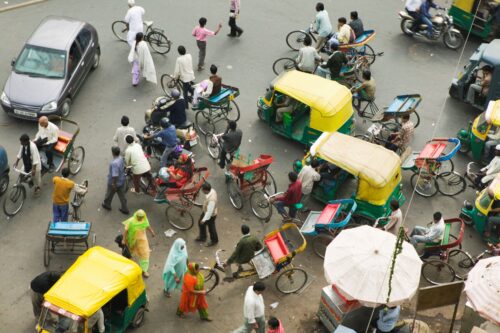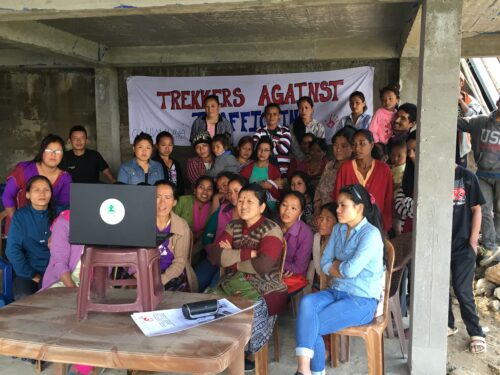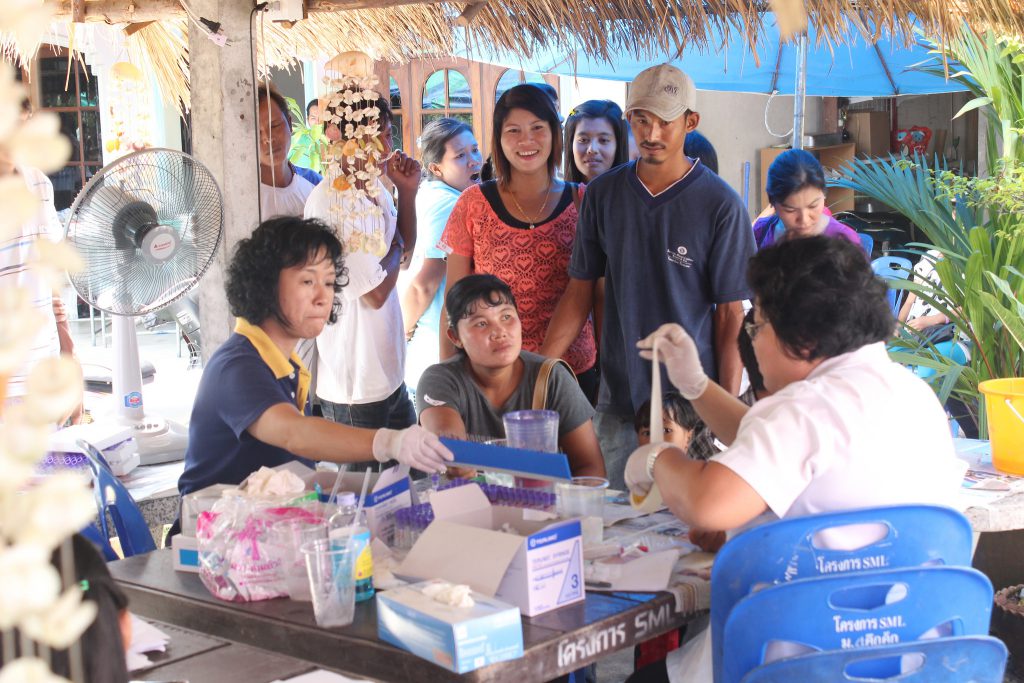Why We Need Transnational Social Protection for Migrants

The current political situation in the U.S. and Europe might suggest that the end of globalization has begun. But such a scenario is highly unlikely. Globalization—and the movement of ideas, capital, goods, and people that goes along with it—will not be coming to a close anytime soon. That is because global capitalism is a more powerful force than national politics. And rising nationalism and xenophobia will not change the fact that, by choice or by force, people will continue to migrate. When it comes to migration, the only question is how to respond to the increasing numbers of people who move, either because they want to or because they must, and to ensure their safety, health, and human rights.
According to the International Organization for Migration, in 2015 the number of international migrants worldwide—people residing in a country other than their country of birth—reached 244 million. That year, migrants sent more than $582 billion home to support their families. These people, be they low-skilled labor migrants or highly skilled professionals, often belong to transnational families. They are parents and children, sisters and brothers who, though separated by physical distance, still rely on the same bank accounts, care for the same children and aging relatives, and in some cases support the same political and religious leaders as their family members back home. They also contribute resources to schools, health clinics, and other social services and infrastructure projects.
My research as a sociologist of migration and culture over the past 25 years has revealed a troubling trend: More and more transnational migrants are residents without membership in the country where they reside. Blocked from becoming citizens by either the law or politics, they live in a state of permanent impermanence, without full rights or representation. The approximately 11.1 million unauthorized migrants living in the United States as of 2014 (which is 3.5 percent of the U.S. population) are a clear example of this. So are the nearly 90 percent of the population living in Qatar who are not citizens. But this issue doesn’t just affect poor and undocumented migrants. The business executives, bankers, professors, and doctors and nurses who move to take advantage of better job opportunities also find themselves living without full rights and social protections.
Instead of resorting to nationalism, protectionism, and xenophobia—which will only make things worse—we need to rethink our assumptions about how people live and work and about how social welfare is provided to both documented and undocumented migrants. Families and communities cross borders but the legal, pension, health care, and education systems that serve them do not. This is a problem for everyone because it is a matter of human rights. All people on Earth, whether or not they are citizens of the country they live in, should have a right to basic protections and services such as health care, education, political representation, and fair labor laws.
What we need to develop, then, is a system that guarantees basic social welfare and labor rights for all people—what my colleagues and I call transnational social protection. New forms of transnational social protection—which are created by states, the market, nongovernmental organizations (NGOs), and out of the social networks linking migrant families and friends—are already emerging to serve people on the move.
For example, the European Health Insurance Card, which was first introduced in 2006, enables European Union members who are on a temporary stay outside their countries of citizenship to access state-provided health care in another European Economic Area country (or Switzerland, Iceland, Lichtenstein, and Norway) under the same conditions and at the same cost as people insured in that country. The Mexican government has extended its national health insurance to emigrants; family members still living in Mexico get comprehensive coverage, while people living outside the country can get their primary care at community health centers in California (and when they have a major health problem, they get their catastrophic coverage in Mexico). As the Association of Southeast Asian Nations (ASEAN) gears up for greater regional integration, several countries have pledged to cover emigrants and immigrants. The Philippines’ social health insurance system already provides limited coverage to emigrants in the countries where they work. These are promising initiatives, but they must be strengthened and expanded.
But transnational social protection goes beyond the purview of the public sector. In the Indian state of Gujarat, a religious organization called the Devotional Associates of Yogeshwar uses funds raised by emigrant members to create schools that prepare students to migrate by offering them English and cultural orientation classes, in addition to teaching math and history. In Europe, the high cost of care, and the shortage of European workers to provide it, means that it is more affordable to move some retired citizens to countries where costs are lower; private providers, seeing a market opportunity, are getting into the act. A German pensioner may be “outsourced” to a senior care facility in Poland. The retiree’s arrival, in turn, pushes a Polish senior citizen to a care facility in the Ukraine.
While these strategies reflect a greater responsiveness to peoples’ mobile lives, they come with costs as well as benefits. In too many cases, migrant families end up paying for the basic services that governments should provide for their citizens. Corrupt, inefficient, and weak states strapped for resources often come up short on the protections they promise. And undocumented migrants, in particular, are still excluded from most of these initiatives. Nonetheless, these are steps in the right direction, but they should complement, not substitute for, the basic social welfare governments owe their citizens.
Despite the current climate of nationalism and protectionism in the U.S. and Europe, globalization is here to stay, and transnational migration will remain an inevitable aspect of our world. Even if President Donald Trump manages to build his “great wall” or the EU succeeds in closing its borders, it will not weaken the strong ties connecting migrants and non-migrants or their collective efforts to protect and provide for their families and communities using resources wherever they are available.
In fact, given shrinking social welfare entitlements and the current anti-immigrant climate in the U.S. and Europe, migrants and refugees are even more likely to need transnational forms of social protection. The sooner we come to terms with that the better the situation will be, or can be, for everyone.
There are two ways to move forward: We can either retreat into nationalistic, xenophobic police states, increasing the pool of documented and undocumented migrants who do not have full rights, thereby creating ever more tumultuous societies. Or we can work together to solve transnational problems such as poverty, illness, and illiteracy, using innovative solutions to create a world in which all people—no matter where they are from and where they live—enjoy the same basic social welfare. The choice, in my opinion, is clear.


































